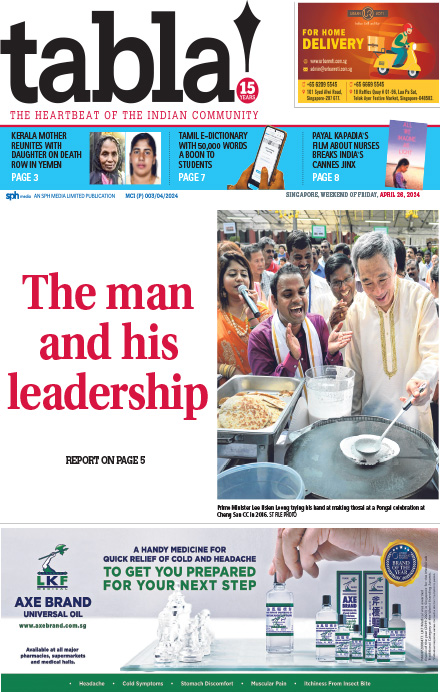A Bollywood film about young Indian women recruited by the Islamic State has sparked renewed controversy ahead of India’s parliamentary elections, with the opposition saying its screening on national TV could “sow seeds of religious animosity”.
Prime Minister Narendra Modi’s Bharatiya Janata Party (BJP) is widely expected to win the multi-phase national elections that begin on April 19, partly thanks to his consistent wooing of the majority Hindu community as well as to strong economic growth and handouts.
The BJP has also fielded many actors in the elections, votes from which will be counted on June 4.
But Bollywood’s involvement in the election took a complicated turn on April 5 when The Kerala Story, set in Kerala that is run by a Left-led coalition, was aired on government-owned national broadcaster Doordarshan.
The small-budget movie, a surprise hit since its release last summer, follows three women who are indoctrinated and convert to Islam from Hinduism and are then sent to Islamic State camps in Afghanistan.
Critics say the film incites negative sentiments against India’s minority Muslim community.
As Doordarshan is free for consumers, the channel reaches many homes across the country.
“Doordarshan is not an agency to undertake communal campaigns for BJP candidates,” Kerala’s Chief Minister Pinarayi Vijayan said.
“Secular Kerala will stand united in resisting such subversive attempts aimed at fostering communal discord.”
The main opposition Congress party also spoke out against the airing.
The Youth Congress staged a protest march to the Doordarshan office in Thiruvananthapuram on April 5.
Earlier that day, the Communist Party of India (Marxist) and the Congress lodged separate complaints with the Election Commission of India against Doordrashan’s decision to air the movie, urging it to intervene and stop the screening.
Later, the Democratic Youth Federation of India, the youth wing of the Communist Party of India, screened a video, “The Kerala Story True or Fake?” by YouTuber Dhruv Rathee at various places across the state to debunk the movie.
A BJP minister said the screening had nothing to do with politics.
“A movie is a piece of art, and the expression of art is guaranteed in the constitution,” said Union Minister of State for External Affairs and Parliamentary Affairs V. Muraleedharan, who is also from Kerala.
A BJP leader on Monday praised the screening of The Kerala Story at a church in Kerala, saying that the controversial film is “getting more and more support” in the state.
The film was screened on Sunday at the church run by the Idukki Diocese as part of a faith festival for Catechism students in classes 10, 11 and 12.
The church also issued a booklet on “love”, highlighting the threats of “love jihad”.
“Love jihad” is a phrase popularised by Hindutva organisations to denote the relationship between a Muslim man and a non-Muslim woman where the Muslim partner wishes to convert the non-Muslim.
State BJP chief K. Surendran said that people in Kerala have “wholeheartedly welcomed the film”.
“People have watched the film together because this is a real issue. Love jihad in Kerala has occurred many times and in many districts, including Kannur. There are hundreds of victims and cases in Kerala,” he said.
Last year, the Kerala High Court refused to stop the release of the film, stating that the trailer did not contain anything offensive to any particular community.
The trailer was challenged before the court after it received widespread backlash for “falsely” claiming that 32,000 women from Kerala were converted and radicalised and deployed in terror missions both in India and abroad.
The BJP has little presence in most southern Indian states like Kerala, but is keen to win more seats there in its bid to secure more than 400 seats for its coalition, out of the 543 seats in the lower house of parliament.
The movie, which Mr Modi has praised publicly, is among a string of Hindi-language films released since last year and which have appealed to BJP’s nationalist base.
In the run-up to the elections, several nationalistic films, including a biopic on Hindu ideologue Vinayak Savarkar, have been released in theatres this year.
“Things are changing,” Randeep Hooda, who directed and acted in the Savarkar biopic, told Reuters.
“It’s a different country; these are different times and therefore there are different movies being made. Nationalistic films have done well in the past.”
Another film, The Sabarmati Report, focuses on an incident where a suspected Muslim mob set fire to a train carrying Hindu pilgrims in Gujarat in 2002, sparking one of India’s worst religious riots since independence.
It will be released in May, in the middle of the nationwide voting period.
Reuters
“Secular Kerala will stand united in resisting such subversive attempts aimed at fostering communal discord.”



